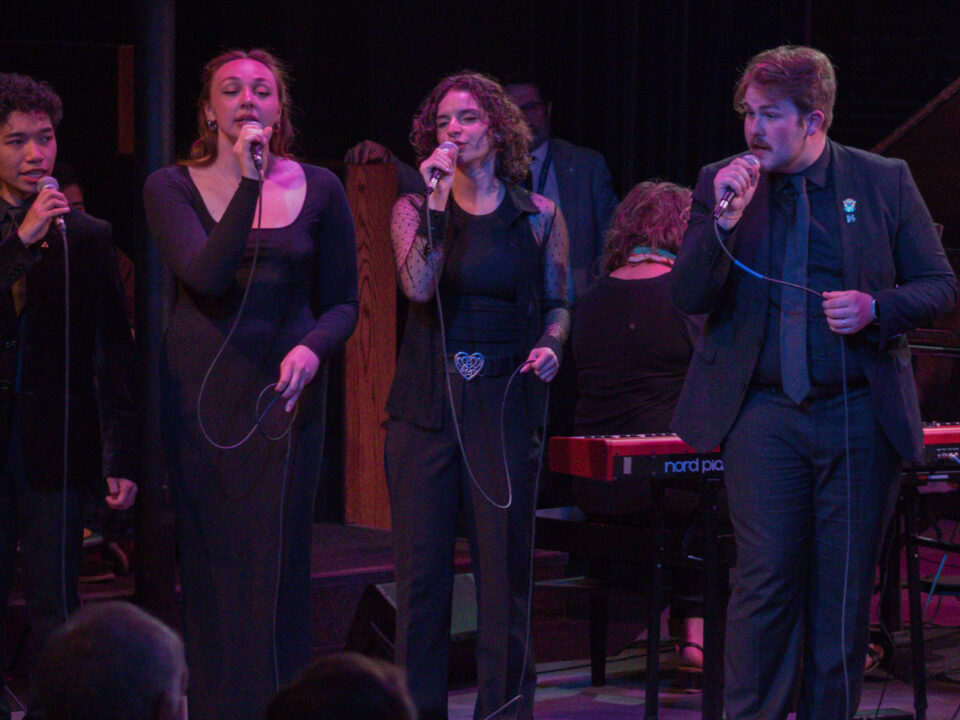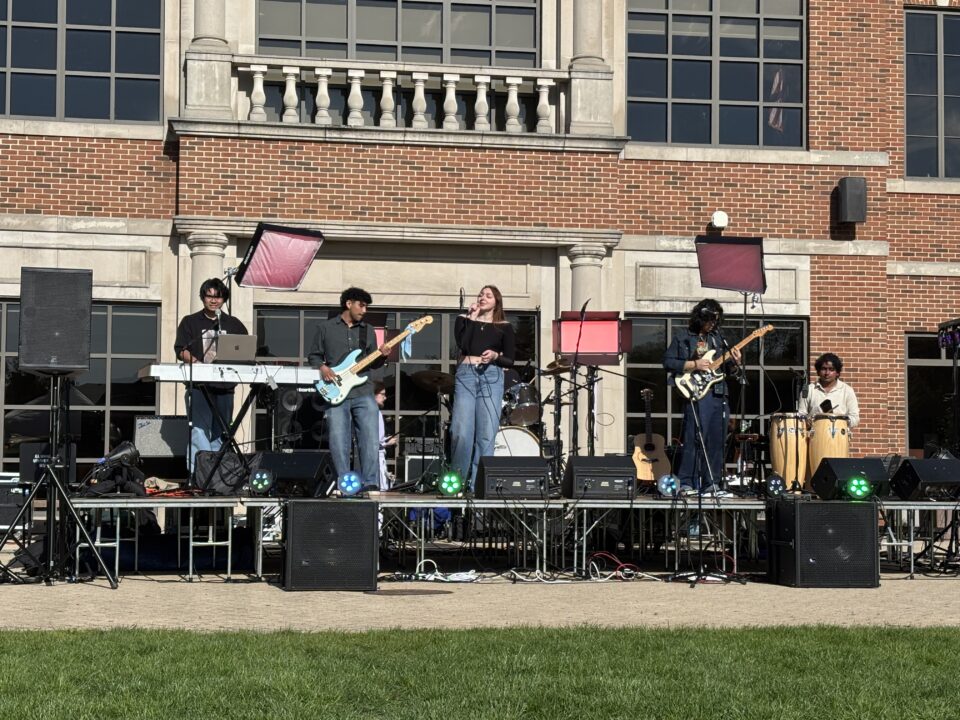“Jojo Rabbit” impresses in unexpected ways

Internet Photo
“Jojo Rabbit” is one of 2019’s boldest creatures. On paper, it seems like its retreading the same ground as “Life is Beautiful” (1997) and Charlie Chaplin’s “The Great Dictator” (1940), but Taika Waititi’s vision goes further than both of them. It can be described in ways that would make it sound ill-advised, but Waititi’s unique, energetic direction combined with the uniformly excellent performances makes this a movie which transcends all expectations.
We’re placed in an unnamed German town where youths are still being trained to become soldiers for Hitler. It’s the tail-end of the war, but propaganda is still being passed around saying Germany is winning.
We meet Jojo (an excellent Roman Griffin Davis, who carries most of the film), a lonely little boy who aspires to be the greatest Nazi in history, but we can quickly tell from his absurd discussions with his imaginary friend, Adolf Hitler (played by Waititi), that he is totally out of touch with what is happening to the world and what Hitler is actually like (the Hitler in his head is a hilariously crooked rendering).
Jojo’s mom, Rosie (Scarlett Johansson), adores Jojo, her last surviving child, and gently tries to steer him away from prejudice, a tricky task considering that any subversion in their homeland results in death.
In one of the film’s most startlingly funny moments, Jojo blows himself up with a grenade during training and is forced to stay home.
The scarred Jojo then discovers that his mom has been hiding a Jewish teenager in their attic named Elsa. She’s played by Thomasin McKenzie in the film’s best performance.
The way Elsa manipulates Jojo into keeping quiet about her presence exemplifies what’s so good about the screenplay, also written by Waititi (adapted from a novel by Christine Leunens): a lesser movie would immediately have the prejudiced bond with the oppressed, but Waititi doesn’t conveniently erase Jojo’s disastrous beliefs about Jews.
As funny as the film can be, it treats Jojo’s misconceptions with seriousness. “Jojo Rabbit” fiercely illustrates that a society built on hate will inevitably produce children who have it running through their veins.
The movie never lets you forget the fact that it’s setting is full of hopelessness, so you may be wondering how it ever manages to be funny. That’s the thing that has to be seen to be believed; there’s an indescribable charm that the film’s style and performances impress on the viewer. Johansson’s Rosie and Thomasin’s Elsa are uncontainable with life and originality.
“Jojo Rabbit” is a pleasurable film filled with pain, shock, and depressing reality. It’s a movie that strives to leave you with peace and laughter, but not at the expense of forgetting what human history—past and present—is like.
This is a movie that’s important and relevant without being overbearing or patronizing. It’s as original and ambitious as anything you’ll see this year.


